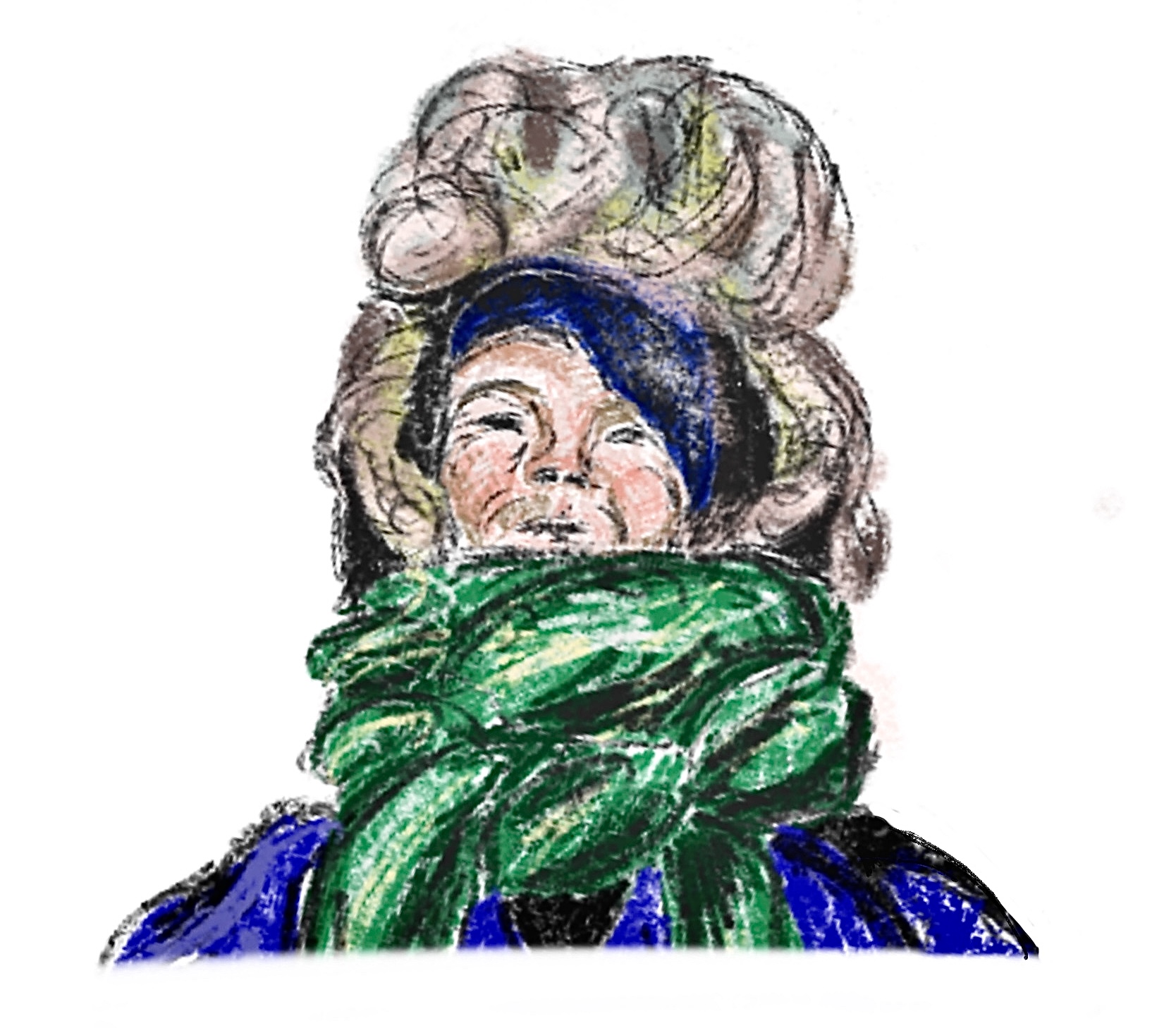Cold climate fuels the ego
February 9, 2024
 This
piece represents the opinion of the author
.
This
piece represents the opinion of the author
.
 Cabell Crowder
Cabell CrowderProlonged existence within cold environments feeds the ego. Or, at least, this has been my experience since hitting the hot and dusty, eastbound out of Los Angeles and settling in Maine last fall. And before I’m met with any gripes about too-thin puffers or my general faintness of heart, my position coalesces around extra-environmental reactions to the environment, not faulty engagement mediated by environmental conditions. In short, a chill like ours can infiltrate the outlook of even the Canada Goose echelon of Polar Bears. My thinking is twofold: coldness as an agent of anatomical withering and the dawn of an accompanying, all-pervasive myopia.
It’s no groundbreaking thought that one’s posture impacts how they engage with their surroundings and how they might be perceived. A straight back and shoulders signify a poised, present individual. Sluggish shoulders and a dropped neck (a posture that I—much to my mother’s chagrin—assume in any weather, inclement or otherwise) suggest a reticence toward one’s outer world. But regardless of how modelesque one’s shoulder alignment may be, there is a certain defensive posture toward any harsh chill that is universally assumed. There is, of course, the consuming tension—jaws, shoulders and brow—in a foolhardy attempt to resist some gust’s unforgiving descent. And then begins the retreat toward the anatomical core. When one’s body experiences significantly lower temperatures, blood rushes to the center of the body, prioritizing proper blood perfusion to the vital organs. Even when you’re not necessarily at risk of organ failure, blood rushes inwards and your appendages can only compensate by huddling toward the core. The dinosaur arms come out and the chin drops. The gait becomes terse and the breath skittish. This is the physiognomy of neuroses. This is the physical condition of the Bowdoin student traipsing across the quad on any given February afternoon.
What’s more is that one must consider this “average Bowdoin student” en route to some point of interest. There is always an end to these means. In February. September or May, however, are different stories entirely. I am alluding to, of course, the reinvention of outdoor space into a strictly transitory one. The average student isn’t pausing for a quick snow bath in between classes or an unexpected chat with an old classmate on an iced-over sidewalk. The average student moves, with intention, from one locale to another. Of course, I recognize that just because people aren’t spending unstructured time outside doesn’t mean they’re not doing it at all. The library and dining halls become spaces of refuge from the bitterness of the outside world. That said, there is something unique about happenstance interaction under the Great Blue. The limitlessness of unwalled, open space provides for an added assurance of spontaneity. Outdoor space promises unboundedness, while walled space can only ever happen upon it.
When outdoor space becomes purely transitional, life takes on the tinge of a mechanistic gray. With rote routine comes winter’s inertia. A constant process of getting dressed and disrobing before and after every aforementioned planned location change forces people into an endless preparatory state. Entrenched in the anxiety of potential physical discomfort and the evolutionary drive to protect oneself from the elements, the subject becomes constantly forward-looking. A profound skepticism toward one’s surroundings—environs the subject deploys scrupulous rituals of protection to resist—andw a reliance on anything beyond the self—beyond the self’s capacity to transport from one safe zone to another—withers the subject. Thus, the ego is fed, stuffed. Thus, we should all probably just head west and relax our shoulders a little.
Comments
Before submitting a comment, please review our comment policy. Some key points from the policy:
- No hate speech, profanity, disrespectful or threatening comments.
- No personal attacks on reporters.
- Comments must be under 200 words.
- You are strongly encouraged to use a real name or identifier ("Class of '92").
- Any comments made with an email address that does not belong to you will get removed.

A touch overdramatic? learn how to ski, maybe?